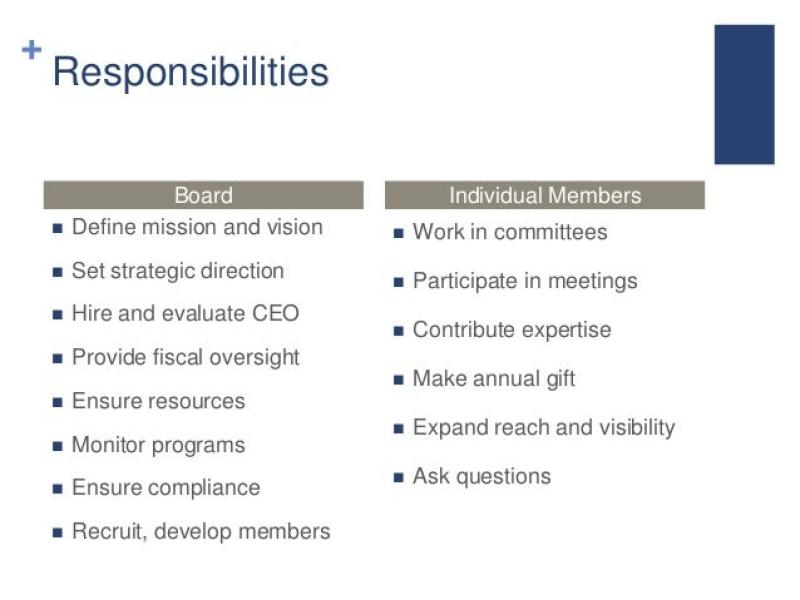What are the real responsibilities of a school board?
School board members have several key responsibilities that collectively contribute to the governance and oversight of a school district. These responsibilities include:
1. Policy Making and Governance:
- Policy Development: Developing and adopting policies that guide the operation and management of the school district.
- Governance Oversight: Ensuring policies align with legal requirements, educational standards, and community needs.
2. Budget Oversight and Financial Management:
- Budget Approval: Approving the annual budget and ensuring fiscal responsibility and transparency in financial matters.
- Financial Planning: Monitoring expenditures, financial audits, and allocating resources to support educational programs.
3. Hiring and Supervising the Superintendent:
- Selecting Superintendent: Recruiting, hiring, and evaluating the superintendent, who serves as the district's chief executive.
- Setting Performance Expectations: Establishing goals and evaluating the superintendent's performance.
4. Curriculum and Educational Standards:
- Setting Curriculum Policies: Overseeing curriculum development, instructional materials, and educational standards.
- Ensuring Educational Quality: Monitoring student achievement and outcomes based on educational goals.
5. Advocacy and Community Relations:
- Community Representation: Serving as a liaison between the community, parents, students, and the school district.
- Advocacy: Advocating for the needs and interests of students and the community at local, state, and sometimes national levels.
6. Legal and Ethical Compliance:
- Compliance: Ensuring the district operates within legal and ethical boundaries, including adherence to state and federal laws.
- Ethical Conduct: Upholding high ethical standards and maintaining transparency in decision-making.
7. School Safety and Facilities:
- Safety Oversight: Addressing safety concerns and implementing measures to ensure a safe learning environment.
- Facilities Management: Overseeing the maintenance and development of school facilities.
8. Evaluation and Planning:
- Continuous Improvement: Assessing district performance and implementing plans for improvement based on evaluations.
- Strategic Planning: Developing long-term strategies and goals for the district's success.
9. Public Engagement and Communication:
- Community Engagement: Engaging with stakeholders through meetings, forums, and communication channels.
- Transparency: Providing information and fostering open communication with the public.
10. Educational Equity and Inclusion:
- Promoting Equity: Ensuring fair and equitable access to resources and opportunities for all students.
- Addressing Diversity: Supporting inclusive educational practices and addressing diversity within the district.
These responsibilities collectively contribute to effective governance, ensuring that the school district operates efficiently, provides quality education, and meets the needs of its students and the community.
School board members play a critical role in the governance and oversight of public schools, ensuring that students receive a quality education and that school districts operate effectively. Their duties and responsibilities encompass a wide range of areas, including:
Establishing and maintaining the district's vision and mission: School board members collaborate to define the district's overall goals, aspirations, and values. They articulate a clear vision for the future of education in the district and establish a mission statement that aligns with this vision.
Setting educational policies and curriculum standards: School board members are responsible for setting policies that guide the educational direction of the district. They determine curriculum standards, adopt textbooks and instructional materials, and establish guidelines for assessment and evaluation.
Oversight of school finances and resource allocation: School board members oversee the district's finances, ensuring responsible budgeting, effective resource allocation, and financial accountability. They approve the district's annual budget, monitor expenditures, and make decisions regarding the allocation of funds for various educational programs and initiatives.
Hiring and evaluating the school superintendent: School board members are responsible for selecting and hiring the superintendent, the chief executive officer of the school district. They evaluate the superintendent's performance regularly and provide feedback to ensure that the district's leadership is aligned with its goals and objectives.
Promoting community engagement and stakeholder input: School board members foster open communication and collaboration with parents, teachers, community members, and other stakeholders. They gather input from various constituencies and consider their perspectives when making decisions that affect the school district.
Ensuring compliance with laws and regulations: School board members ensure that the district operates in compliance with all applicable federal, state, and local laws and regulations. They stay abreast of changes in legal requirements and adapt policies and procedures accordingly.
Advocating for the district and its students: School board members serve as public advocates for the school district and its students. They communicate the district's accomplishments and challenges to the community, state and federal legislators, and other stakeholders. They also represent the interests of students in educational policy discussions and decision-making processes.
Promoting a safe and inclusive learning environment: School board members work to create and maintain a safe and inclusive learning environment for all students. They establish policies and procedures that prevent discrimination, promote respect and understanding among diverse groups, and address any instances of bullying or harassment.
Evaluating the overall effectiveness of the school district: School board members regularly evaluate the overall performance of the school district and its individual schools. They review data on student achievement, graduation rates, and other performance indicators to identify areas for improvement and make data-driven decisions to enhance the district's effectiveness.
Maintaining ethical standards and transparency: School board members uphold the highest ethical standards in their decision-making and conduct. They operate with transparency, providing clear and accessible information to the public about their actions and decisions. They avoid conflicts of interest and maintain a commitment to serving the best interests of the school district and its students.













